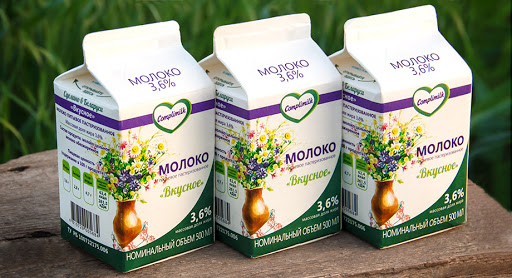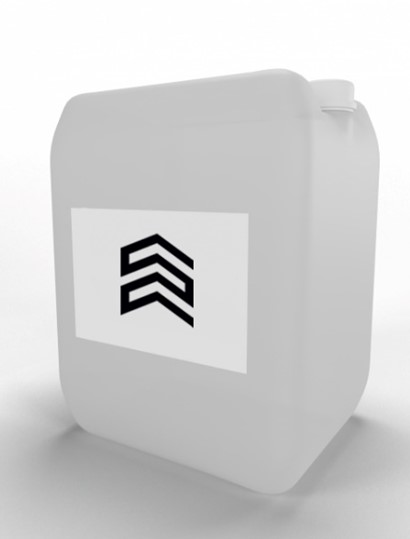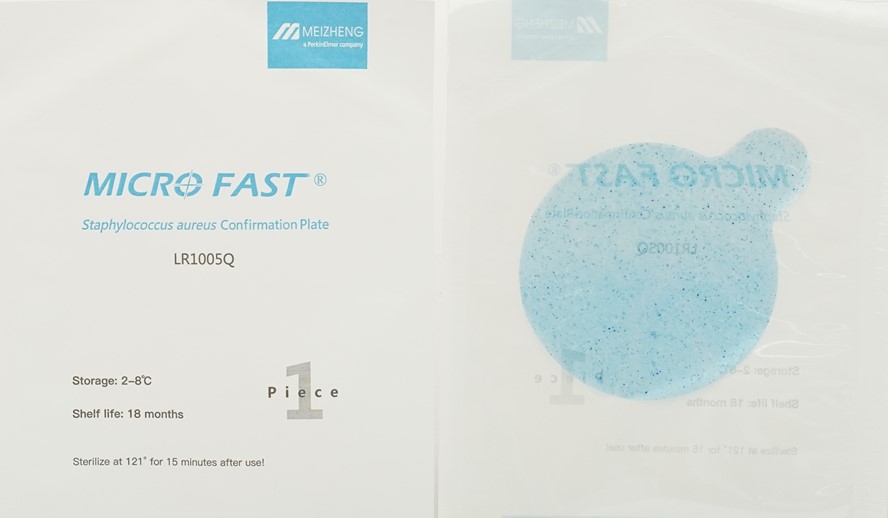- Antibiotics Tests in Milk
- Inhibitory detection test
- Laboratory equipment
- Centrifuges
- Indicator strips
- Autoclaves
- Scales
- Thermometers
- Packing
- PureTrust ATP monitoring
- ATP monitoring PIONEERPRODUKT CleanTrust
- MICROFAST® substrates
- Nutrient media
- Ice cream sticks
- Consumables
- Detergents and disinfectants
- Treatment agent
- Milk filters
- Wipes
- Gloves
- Sampling
Roskachestvo found pathogens and antibiotics in semi-finished meat products
Roskachestvo conducted a study of 19 brands of semi-finished MEAT products for grilling: 11 samples of kupaty and eight of sausages, during which pathogenic microorganisms were found in some of them. RBC has a copy of the study.
The products were tested for 162 indicators of quality, safety and reliability of labeling, and organoleptic properties were also checked. All products were manufactured in RUSSIA.
Thus, listeria, a pathogenic bacteria, was found in the products of the TM “Myasnitsky Ryad” (kupaty).bacteria that cause listeriosis.
Sulfanilamide, an antimicrobial drug from the sulfanilamide group, also known as streptocide, was found in the kupaty of the TM "Ostankino".
Roskachestvo noted that antibiotics are often found in trace amounts in meat products, but in this case, experts found the presence of drugs in quantities unacceptable by the Technical Regulations.
In addition, six samples showed an excess of the peroxide number of fat, which indicates the beginning of spoilage of the product. This may be due to a violation of the storage conditions of the products, Roskachestvo noted.
In products of six brands (Blizhnie Gorki - sausages , Ostankino - kupaty, Slovo Myasnika - sausages, Auchan - sausages, Myasnitsky Ryad - kupaty, Restoria - kupaty) carrageenan was found that was not declared in the composition. Also, in products of six brands, experts found pieces of cartilage, and in one - pieces that were dense for chewing.
Carrageenan is a natural gelling agent and thickener obtained from red seaweed by extraction and subsequent purification. Chemically, carrageenan is a linear sulfated polysaccharide consisting of galactose monomers and its derivatives. Carrageenan has a unique ability to form gels of varying density and texture, bind water and stabilize emulsions.
Roskachestvo added that none of the samples contained fur-boned meat or DNA from cats, dogs or rats. The net weight does not correspond to that declared in the kupaty of the “Special Collection” trademark (lower than declared).
Regional departments of Rospotrebnadzor have issued warnings about the inadmissibility of violating mandatory requirements in relation to the specified manufacturers.
At the end of May, Roskachestvo conducted a study of 20 brands of washing powders. The agency studied the compliance of goods with 48 indicators of quality, safety and reliability of labeling. All samples passed the test.
Read RBC inTELEGRAM .
 Rapid tests for determining the residual amount of chloramphenicol in meat
Rapid tests for determining the residual amount of chloramphenicol in meat PIONEER MEIZHENG BIO-TECH (5 in1) JC1165 / Rapid tests for the determination of the residual amount of halofuginone, flavomycin, novobiocin, flunixin, dexamethasone / prednisolone in milk, whey
PIONEER MEIZHENG BIO-TECH (5 in1) JC1165 / Rapid tests for the determination of the residual amount of halofuginone, flavomycin, novobiocin, flunixin, dexamethasone / prednisolone in milk, whey PIONEER MEIZHENG BIO-TECH (5 in 1) JC0726 / Rapid tests for determining the residual amount of Bacitracin, ansamycins, clindamycin, spiramycin, florfenicol in milk, whey
PIONEER MEIZHENG BIO-TECH (5 in 1) JC0726 / Rapid tests for determining the residual amount of Bacitracin, ansamycins, clindamycin, spiramycin, florfenicol in milk, whey ANTIBIOTICS / ELISA TESTS
ANTIBIOTICS / ELISA TESTS PIONEER MEIZHENG BIO-TECH (5 in1) JC0586 - Antibiotic tests 5 in 1 / Rapid tests for determining the residual amount of β-lactams, tetracyclines and cephalexin in milk, whey
PIONEER MEIZHENG BIO-TECH (5 in1) JC0586 - Antibiotic tests 5 in 1 / Rapid tests for determining the residual amount of β-lactams, tetracyclines and cephalexin in milk, whey Rapid 4 in 1 tests for determining the residual amount of neomycin, kanamycin, gentamicin, spectinomycin in milk, whey
Rapid 4 in 1 tests for determining the residual amount of neomycin, kanamycin, gentamicin, spectinomycin in milk, whey- Express tests for determining the residual amount of β-lactams, tetracyclines, chloramphenicol, streptomycins in milk, whey
- Rapid tests for fluoroquinolone, erythromycin, lincomycin, tillosin and tilmycosin residues in milk, whey
- Rapid tests PIONER 5 in 1 for the determination of sulfonamides, tylosin, tilmicosin, lincomycin, erythromycin, fluoroquinolones
- Express tests for determining the residual amount of β-lactams and tetracyclines in milk, whey
 Solutions for washing of analyzers EkoWeek, EkoDay (Bulgaria)
Solutions for washing of analyzers EkoWeek, EkoDay (Bulgaria) Receipt printer MPRINT G58 for analyzer "Laktan 1-4M"
Receipt printer MPRINT G58 for analyzer "Laktan 1-4M" Indicator strips "NS-iron", 25 pcs.
Indicator strips "NS-iron", 25 pcs. Areometer AON - 1 (set of 19)
Areometer AON - 1 (set of 19) Sink table BA-CL- X.H.MO C (one bowl)
Sink table BA-CL- X.H.MO C (one bowl) Microbial Colony Counter SKM-2
Microbial Colony Counter SKM-2- pH electrodes Hanna Instruments (Germany)
- IKA MICROSTAR and MINISTAR compact high-performance agitators
- Universal homogenizer Ultra-Turrax Tube Drive P control, IKA
- Infrared thermometer with laser pointer Testo 830-T1, Testo 830-T2
- Moisture content analyzer MB23 (Ohaus)
- LactoScope FT-B - Milk Analyzer with Limited Capabilities for Cream
- Indicator strips "Peroxide-25 mg", "Peroxide - 1000 mg", 100 pcs.
- Overhead stirrer WB2000-M
- Bactericidal ultraviolet irradiator OBN
 Cartons for milk and dairy products
Cartons for milk and dairy products Laminating paper KH PACK®
Laminating paper KH PACK® Laminating paper KH PACK®
Laminating paper KH PACK® Backed Foil
Backed Foil KH PACK® tartlet paper
KH PACK® tartlet paper Plastic packaging for cakes and pastries
Plastic packaging for cakes and pastries- KH PACK® Straight Packing Paper
- Cover
- The paper packing fastened anticorrosive UNIK 14-70 THAT 5453-003-05773103-2005
- KH PACK® bag making paper
- Skiving and Hemming Technology
- Parchment
- Korreks for confectionery
- Korreks for desserts
- Carton
 Ice cream sticks (with logo)
Ice cream sticks (with logo) J-Bottom technology
J-Bottom technology Petri dish 90 mm
Petri dish 90 mm Pepsin whey pork
Pepsin whey pork Ice cream sticks (round)
Ice cream sticks (round) General purpose environment of SPC "Biocompass-S" (Uglich)
General purpose environment of SPC "Biocompass-S" (Uglich)- Wafer cup and cone
- Ice cream sticks Standard 93
- Auxiliaries for sugar products
- Ice cream sticks Standard 114
- Ice cream sticks Magnum (curly)
 Disinfectant with washing effect (10kg)
Disinfectant with washing effect (10kg) Veterinary Needles Reusable
Veterinary Needles Reusable Dosing syringe, hose attachment
Dosing syringe, hose attachment Cup for disinfection of udder teats (non-returnable)
Cup for disinfection of udder teats (non-returnable) Napkin reusable for wiping the udder
Napkin reusable for wiping the udder Veterinary glove to the shoulder and through the neck
Veterinary glove to the shoulder and through the neck- Udder cleaner after milking (20 l)
- Liquid soap "Prestige" (yellow, green, red) 5 l
- Cassettes for DCC somatic cell counter
- Gas tailing cutter
- Non-returnable cup for udder treatment
- Self-adhesive hoof bandage
- Fall with a loop for cattle
- Mug for milking the first streams of milk.
- Spatula for mastitis test (Shalm's test)
 MicroFast® Staphyloccocus aureus Confirmation Plate Staph.aureus Confirmation Plate (cat. no. LR1005Q)
MicroFast® Staphyloccocus aureus Confirmation Plate Staph.aureus Confirmation Plate (cat. no. LR1005Q) MicroFast® Microbiological Substrates
MicroFast® Microbiological Substrates Substrate for accelerated determination of QMAFAnM, (catalog number LR1321)
Substrate for accelerated determination of QMAFAnM, (catalog number LR1321) Coliform Count Plate (catalog number LR1002) MicroFast® Coliform Count Plate
Coliform Count Plate (catalog number LR1002) MicroFast® Coliform Count Plate MicroFast® Salmonella Count Plate (SAL), for the determination of Salmonella in food and environmental samples (Catalog #LR1006)
MicroFast® Salmonella Count Plate (SAL), for the determination of Salmonella in food and environmental samples (Catalog #LR1006) MicroFast® Lactic Acid Bacteria Count Plate (Part Number LR1312)
MicroFast® Lactic Acid Bacteria Count Plate (Part Number LR1312)- MicroFast® Bacillus cereus Count Plate (catalog number LR1010)
- MicroFast® Enterobacteriaceae Count Plate (cat. no. LR1011)
- Yeast & Mold Count Plate (cat. no. LR1003) MicroFast® Yeast & Mold Count Plate
- Substrate for determining QMAFAnM (catalog number LR1001)
- Substrate for determining the number of staphylococci (Catalog number LR1005) MicroFast® Staphyloccocus aureus Count Plate
- MicroFast® Environmental Listeria Count Plate
- MicroFast® Coliform & E.coli Count Plate
 В ОАО "Агро-Колядичи" умеют получать завидные урожаи30.09.2025
В ОАО "Агро-Колядичи" умеют получать завидные урожаи30.09.2025 "Россь" не рассчитывает на авось30.09.2025
"Россь" не рассчитывает на авось30.09.2025 Куда инвестирует бизнес? Узнали, какой город в Беларуси выбрал для вложений производитель протеиновых батончиков30.09.2025
Куда инвестирует бизнес? Узнали, какой город в Беларуси выбрал для вложений производитель протеиновых батончиков30.09.2025- БУТБ обеспечит платформу для взаимодействия белорусского и индонезийского бизнеса28.09.2025
- В ОАО "Святая Воля" в Ивацевичском районе за полгода выручка на каждого работника составила Br98 тыс.27.09.2025
- Газ на пятилетку, вторая АЭС, защита общего рынка и Украина. Подробности переговоров Лукашенко и Путина27.09.2025
- Record-breaking animals are being raised at the Ross breeding farm in the Volkovysk district.26.09.2025
- Шашлычок, мясные шарики, гуляш, борщ. Посмотрели, чем кормят детей в школе и сколько это стоит26.09.2025
- At OJSC "Svyataya Volya" in the Ivatsevichi district, revenue per employee over the past six months amounted to Br98 thousand.26.09.2025
- OAO Ostromechevo invested over $18 million in livestock development.26.09.2025
- Farmers at Rogoznyansky JSC in Zhabinka District increased their grain yields by more than a third.25.09.2025
- В ОАО "Агро-Колядичи" самой урожайной культурой оказался ячмень25.09.2025
- Алтайский край заинтересован в развитии биржевой торговли с Беларусью25.09.2025
- Белорусские сахарные заводы начали экспортировать свекловичный жом в ОАЭ через биржу24.09.2025
- Беларусь увеличила объемы биржевой торговли со странами Ближнего Востока на 29% 24.09.2025
- Work in the agro-industrial complex, projects in Shklov and Pripyat. Lukashenko heard a report from the Presidential Property Management Department.24.09.2025
 Белгородская область провела всероссийскую конференцию по биобезопасности в АПК30.09.2025
Белгородская область провела всероссийскую конференцию по биобезопасности в АПК30.09.2025 Рост производства мяса и молока в Ивановской области: инвестпроекты подстегивают отрасль30.09.2025
Рост производства мяса и молока в Ивановской области: инвестпроекты подстегивают отрасль30.09.2025 Ямал демонстрирует умеренную инфляцию на фоне снижения цен на овощи и яйца30.09.2025
Ямал демонстрирует умеренную инфляцию на фоне снижения цен на овощи и яйца30.09.2025- Калининградские инспекторы предотвратили ввоз крупной партии птицеводческой продукции из Китая30.09.2025
- Уверенный рост перерабатывающей промышленности Армавира: подсолнечное масло и мясные продукты на первом месте30.09.2025
- Карантин в Волгоградской области из-за вспышки бруцеллеза30.09.2025
- Директор энгельсского интерната осуждён за незаконные закупки мяса на сумму почти 12 миллионов рублей30.09.2025
- Вакцина против ящура вошла в финал конкурса «Успешный патент — 2025»30.09.2025
- "Черкизово" увеличило продажи мяса птицы на 9,7% за первое полугодие 2025 года30.09.2025
- Успехи "Мираторг" в Увеличении Поставок Свинины в Индию30.09.2025
- «Дамате» получила разрешение на экспорт индейки в Боснию и Герцеговину30.09.2025
- Российские производители продукции АПК начали деловую миссию в Индию на выставке World Food India 202526.09.2025
- Министр сельского хозяйства Оксана Лут озвучила результаты работы АПК и планы на будущее26.09.2025
- Аргентина: SENACSA усиливает национальную кампанию против бруцеллеза крупного рогатого скота26.09.2025
- The meat industry is preparing to open its trade show in Cologne: Anuga Meat will feature up to 860 exhibitors.26.09.2025
- Meat Perspectives: The Convenience of Meat26.09.2025
 10 reasons to take a deposit04.05.2025
10 reasons to take a deposit04.05.2025 Евросоюз частично восстановит санкции против Ирана30.09.2025
Евросоюз частично восстановит санкции против Ирана30.09.2025 Yle узнал, что ЕС не планирует вносить российский никель в список санкций28.09.2025
Yle узнал, что ЕС не планирует вносить российский никель в список санкций28.09.2025- Иран сообщил о предложенной Штатами отсрочке санкций в обмен на уран28.09.2025
- Кремль отреагировал на планы ЕК изменить механизм продления санкций27.09.2025
- МИД ввел санкции против Британии и назвал ее меры «тришкиным кафтаном»27.09.2025
- Politico узнало, что ЕК предложила поменять механизм продления санкций26.09.2025
- В Венгрии подсчитали убытки из-за отказа от российского газа26.09.2025
- The FT reported on the German cellist's "too bold" ties to Russia.26.09.2025
- Bloomberg назвал условие Индии для отказа от российской нефти26.09.2025
- EUObserver узнал о нежелании ЕС закрываться от российских туристов25.09.2025
- Bolton called Rubio's remarks about sanctions against Russia nonsense.25.09.2025
- Захарова ответила на данные об обращении к ИКАО: Россия ничего не просит25.09.2025
- В ЕС заявили, что не планируют вводить санкции за покупку нефти у России25.09.2025
- Медведев связал соблюдение Договора об СНВ с отменой санкций США24.09.2025
- Peskov explained Trump's demands to stop oil purchases from Russia.24.09.2025
 В Британии предупредили о риске для миллионов из-за супербактерий06.01.2025
В Британии предупредили о риске для миллионов из-за супербактерий06.01.2025 Moscow court sides with Indian company in dispute with Health Ministry26.11.2024
Moscow court sides with Indian company in dispute with Health Ministry26.11.2024 Scientists estimate increase in mortality due to drug-resistant bacteria29.10.2024
Scientists estimate increase in mortality due to drug-resistant bacteria29.10.2024- Antibiotics for livestock and pesticides found in poisoned family's home29.10.2024
- Izvestia reported on the shortage of widely used antibiotics in Russia29.10.2024
- The Ministry of Health called data on the shortage of antibiotics unreliable29.10.2024
- Scientists warn of threat of return to pre-penicillin times29.10.2024
- The Ministry of Health explained how attitudes towards antibiotics changed during the pandemic07.05.2024
- WHO explains the risks of taking antibiotics "just in case"06.05.2024
- Doctors warn of bad practices after government decision on antibiotics25.04.2024
- The Ministry of Health removed antibiotics and hormones from the standard treatment of ARVI25.04.2024
- Antibiotics in oil: myth or reality?06.03.2024
- Antibiotics in sour cream: myth or reality?05.03.2024
- Antibiotics in goat milk: effects, problems and control measures16.02.2024
- The Japanese will stop producing the popular antibiotic vilprafen in Russia23.12.2023
- Antibiotics in Milk21.12.2023
 Antibiotics in pollock25.02.2024
Antibiotics in pollock25.02.2024 Antibiotics in herring: myth or reality?12.02.2024
Antibiotics in herring: myth or reality?12.02.2024 Antibiotics in perch10.02.2024
Antibiotics in perch10.02.2024- Antibiotics in sprat: facts and myths10.02.2024
- Antibiotics in tuna: an important health and environmental issue09.02.2024
- Antibiotics in meat30.01.2024
- Antibiotics in chebureks: myth or reality?29.01.2024
- Antibiotics in cutlets: problem or myth?18.01.2024
- Antibiotics in Chicken: Where Are the Highest Concentrations?17.01.2024
- Antibiotics in carp17.01.2024
- Where Are More Antibiotics in Chicken: Reality and Cautions16.01.2024
- Antibiotics in Salmon: Safety and Product Quality16.01.2024
- Antibiotics in Turkey15.01.2024
- Antibiotics in Sal: Reality and Safety Issues15.01.2024
- Antibiotics in Fried Dumplings: Facts, Risks and How to Stay Safe15.01.2024
- Antibiotics in sausages14.01.2024
 Antibiotics in Coffee: Myths and Reality03.05.2025
Antibiotics in Coffee: Myths and Reality03.05.2025 Forged forks: 10 interesting facts16.05.2024
Forged forks: 10 interesting facts16.05.2024 Swimming pool and weight loss: 10 interesting facts10.03.2024
Swimming pool and weight loss: 10 interesting facts10.03.2024- Tests for antibiotics in milk - 10 interesting facts07.03.2024
- Cleaning the kettle from scale, 10 interesting facts...06.03.2024
- Antibiotics in beer: 10 interesting facts04.03.2024
- Wild boar, how to survive...01.03.2024
- Purulent mastitis, 10 interesting facts27.02.2024
- Lemon and alcohol: 10 interesting facts25.02.2024
- Mint - 10 interesting facts25.02.2024
- Wild boar, 10 interesting facts20.02.2024
- Wild boar and domestic pig: comparison and advantages20.02.2024
- Cottage cheese, 10 interesting facts20.02.2024
- 10 Interesting Facts About Milk19.02.2024
- How to Clean a Toilet - 10 Interesting Facts (Acid vs Alkaline)18.02.2024
- Goat's milk: 10 interesting facts16.02.2024
 Dicroceliosis in cattle09.03.2024
Dicroceliosis in cattle09.03.2024 Demodicosis in cattle01.03.2024
Demodicosis in cattle01.03.2024 Purulent mastitis of cattle27.02.2024
Purulent mastitis of cattle27.02.2024- Hypodermatosis in cattle20.02.2024
- Hemonchoz in cattle11.02.2024
- Bursitis in cattle30.01.2024
- Brucellosis in cattle29.01.2024
- Bronchopneumonia in calves27.01.2024
- Bronchitis in cattle26.01.2024
- Mortellaro disease in cattle24.01.2024
- White muscle disease in cattle23.01.2024
- Babesiosis in cattle22.01.2024
- Cattle acidosis20.01.2024
- Arthritis in cattle20.01.2024
- Anaplasmosis in cattle18.01.2024
 Antibiotics for coughs: when they are needed and when they are not11.02.2024
Antibiotics for coughs: when they are needed and when they are not11.02.2024 Хулиганство в интернете и реальной жизни. Верховный Суд обновил разъяснения для правоприменителей30.09.2025
Хулиганство в интернете и реальной жизни. Верховный Суд обновил разъяснения для правоприменителей30.09.2025 Возмещение морального вреда, 4 года колонии. Вынесен приговор виновнику смертельного ДТП под Гомелем30.09.2025
Возмещение морального вреда, 4 года колонии. Вынесен приговор виновнику смертельного ДТП под Гомелем30.09.2025- She stabbed her partner in the back. The Investigative Committee has revealed details of the criminal case in Novopolotsk.27.09.2025
- За смену - десятки вызовов. Сотрудники ППС о спецзаданиях и необычных случаях 27.09.2025
- Как победить "осенний синдром"? Очень простые советы для хорошего самочувствия27.09.2025
- В Беларуси перенесены сроки введения прослеживаемости и маркировки товаров 26.09.2025
- Что является одной из основных причин травмирования на производстве, рассказали в ФПБ25.09.2025
- Минчанин лишился крупной суммы и золотого слитка после неудачного свидания 24.09.2025
- В центре внимания пешеходы и велосипедисты. ГАИ усилила контроль за соблюдением ПДД в Минском районе 24.09.2025
- Навигационные пломбы для отслеживания перевозок начнут применять на всей территории ЕАЭС24.09.2025
- В Минске пьяный водитель повредил девять припаркованных автомобилей24.09.2025
- Борьба с контрабандой, переориентация грузов. Как работают белорусские таможенники21.09.2025
- Как будут регулировать интернет-торговлю в Беларуси? МАРТ предложил обсудить проект указа 20.09.2025
- В Гродно работник СТО взял автомобиль, который сдали для химчистки, и попал в ДТП19.09.2025
- Основная причина пожаров в Могилевской области в этом году - неосторожное обращение с огнем 19.09.2025
Persons
Our Partners
Top 10
Our Test - Pioneer Tests
- Express tests for determining the residual amount of β-lactams, tetracyclines, chloramphenicol, streptomycins in milk, whey
- TEST KIT for determination of inhibitory agents PIONEERPRODUKT® DASH-TEST, WC0040
- PIONEER MEIZHENG BIO-TECH (5 in1) JC0586 - Antibiotic tests 5 in 1 / Rapid tests for determining the residual amount of β-lactams, tetracyclines and cephalexin in milk, whey
- PIONEER MEIZHENG BIO-TECH (5 in1) JC0871/ Rapid tests for the determination of the residual amount of β-lactams, tetracyclines, chloramphenicol, streptomycins, ceftiofur in milk, whey.
- PIONEER MEIZHENG BIO-TECH (5 in1) JC1165 / Rapid tests for the determination of the residual amount of halofuginone, flavomycin, novobiocin, flunixin, dexamethasone / prednisolone in milk, whey